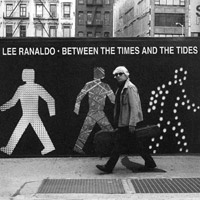
MDNA
Interscope/Live Nation
As much as Madonna has at times represented the basest of truisms about pop music and pop culture at large (“style over substance,” “sex sells,” etc.), there is no denying that she has also been a cultural force unto herself. As a siphon for emerging trends, as well as barometer of cultural taboos, it has been impossible to ignore the singer (and actor, director, etc.) during the more than three decades since she emerged out of New York’s club scene. As such, even though MDNA may not seem like the kind of thing we’d usually bother with at The Agit Reader, we too cannot ignore the iconic force of nature that is Madonna.
Similarly, it is near impossible to take any Madonna record at face value, and this bunch of songs has already been judged lyrically as they relate to her split with former hubby Guy Ritchie. That’s obvious on “I Don’t Give A,” with its lines about prenups and trying to be a good wife, and other cuts throughout the album. But few are looking to Madonna for the revelations embedded in her words, but rather lyrical hooks nestled within the comfortable setting of a brilliant pop tune. But unfortunately, wondrous pop songs have become fewer and farther between from the star over the past decade.
Indeed, while Madonna has continued to find complimentary collaborators, those defining qualities that have elevated her best work seem to have gotten lost in the filigree. MDNA’s strongest songs stand out for their instrumental idiosyncrasies and not necessarily anything distinctly characteristic of the Material Girl. William Orbit helps create a dimly lit banger out of throbbing bass on “Gang Bang,” while on “Love Spent,” whose monetary metaphors are Madonna’s finest writing on the record, he meshes a banjo line with oscillating electro-pop. “I’m Addicted,” produced by Benny Benassi, utilizes a similarly synthetic treatment, but interjects big rushes of white rave noise to create excitement.
But while many tracks have been expertly groomed for the dancefloor, it’s the big pop song that is needed. On the first single, “Give Me All Your Luvin’,” Nicki Minaj and MIA cheer her on, but Madonna drops the ball. Second single “Girl Gone Wild” is as close as Madonna gets to delivering the kind of quintessential mix of dance grooves and pop smarts that we expect from her, but the track seems like decoupage when compared to something like, say, “Into the Groove” or “Papa Don’t Preach.” It’s hard to tell if its lack of inspiration or simply that Madonna has finally assimilated into the canon she once helped create, but like its predecessor (Hard Candy), MDNA seems destined to be lost in the glare of the superstar’s legacy.
Stephen Slaybaugh

The Next Logical Progression
Quannum Projects
Even though the battle has been fought infinitum and the same tired arguments rehashed endlessly, in hip-hop there seems to be a default for artists. You’re either mainstream, which means vacuous pop, or you’re underground, which equals real hip-hop. Or maybe mainstream equals the stuff that’s hot on the streets and underground is just the providence of out-of-touch nerds. However you define the distinction, it’s hard to ignore the continued blurring of the lines. Take, for example, Gift of Gab. As a member of the original Quannum crew and Blackalicious, he rode the rise of underground hip-hop as it got pushed through a network of like-minded college radio stations, magazines and fans. But Blackalicious also had a stint on MCA Records and toured with such artists as Ben Harper. Gift of Gab managed to balance the technical prowess favored by underground fans, but still stay sonically accessible. It’s a skill that he utilizes again for his third solo album, The Next Logical Progression.
While Blackalicious has been quiet since 2005, Gab has kept busy with solo releases and as a member of The Mighty Underdogs. While it’s hard for an MC to carve a separate identity from his group, Gab has taken the opportunity to get a little spacier than he normally would with Blackalicious. However, The Next Logical Progression finds him decidedly more earthbound. Balancing playful narratives about the downfall of ex-girlfriends (“Effed Up”) and rappers with ambition but no talent (“Wack But Good People”) with social concerns (“Market & 8th”), Gab has an everyman appeal about him, and in a different radio climate, you could imagine hearing some of the songs in drive time. While not as soul-driven as Blackalicious’ best work, there’s still a pop undertone on much of the album that serves as a counterbalance to the highly technical lyrical and vocal twists and turns that have become Gift of Gab’s trademarks. He combines the best elements of being mainstream and underground without selling either short. And as far as album titles go, Gift of Gab nailed it.
Dorian S. Ham
MP3: “Protocol”

Between the Times and the Tides
Matador
Partly responsible for Sonic Youth being most closely identified with terrifyingly noisy swaths of guitar, Lee Ranaldo no doubt feels the need for some peace and quiet during the band’s down time. As such, it is no surprise that his most recent solo foray, Between the Times and the Tides, isn’t drenched in the feedback and atonal chords that have been his stock-in-trade. What is surprising is that it is so, well, ordinary.
Between the Times and the Tides isn’t Ranaldo’s first solo outing—far from it. He’s released at least half a dozen records under his own name, with the first, From Here to Infinity, dating back to the Sonic Youth’s salad days on SST, who also released the album. But with such work having more in common with his avant garde roots as a member of Glenn Branca’s ensembles, Ranaldo’s solo albums have always made even Sonic Youth’s oddly tuned outbursts seem traditional by comparison. This album, on the other hand, veers in the opposite direction. Tracks like “Off the Wall” and “Lost” are rudimentary folk-rock numbers that aren’t exactly compelling in their normalcy. “Waiting on a Dream,” which leads off the album, and “Xtina As I Knew Her” are more tumultuous, and quickly prove where Ranaldo’s strengths lie. In other words, if Lee needs to take a break from the noise, he’d be better off taking a vacation than turning down.
Stephen Slaybaugh
MP3: “Off the Wall”

Sounds from Nowheresville
Columbia
It’s been nearly four years since The Ting Tings became dancefloor darlings with infectious, energetic pop tracks like “Shut Up and Let Me Go” and “Great DJ” from their debut, We Started Nothing. In the meantime, British duo Jules de Martino and Katie White recorded a follow-up album in Berlin, then scrapped it for being too “Euro-pop.” One of those tracks, “Hands,” survived and was released as a single late last year (and is included on the deluxe edition of Sounds from Nowheresville). Beginning with a nod to David Bowie’s “Modern Love,” it’s extreme dance-pop that’s catchy, but not something you want in large doses.
Instead, the duo takes on a variety of styles throughout Nowheresville, from the melancholy balladry of “In Your Life” to the moody synth-pop of “One by One.” Still The Ting Tings’ most recognizable characteristic—White’s sassy half-spoken, half-sung vocal delivery—is omnipresent in tracks like the slow-building “Help” and first single “Hang It Up.” As on We Started Nothing, The Ting Tings continue to liberally borrow from other sources, but it’s not as distracting or obvious as those on the last record, such as the similarities of “That’s Not My Name” to Toni Basil’s “Mickey.” As such, it’s hard to dislike what they do. The Ting Tings are like diet soda: tasty and relatively harmless from time to time, especially compared to the aural transfats of Black Eyed Peas, Coldplay and countless others. Even this record’s weakest cut, “One By One,” which belongs on a tween coming-of-age movie soundtrack, has undeniable appeal. The Ting Tings may never break new ground, but with their latest record, they prove once again that they don’t need to.
Josie Rubio

The Politics of Envy
Future Noise
It is no cliche to say that Mark Stewart has always been ahead of his time. As leader of agit-prop, post-punk funkateers The Pop Group, he helped shape a sound that was as revolutionary, albeit under-appreciated, as the band’s political agenda. As a solo artist, his work with Adrian Sherwood’s On-U Sound was a major influence on Massive Attack and other trip-hop artists, as well as industrial figureheads like Al Jorgensen.
Besides regrouping The Pop Group a few years ago, Stewart has been quiet since 2008’s Edit. However, he has returned with a vengeance, enlisting a roster of some of music’s most important innovators to help him with his new record, The Politics of Envy. On the leadoff cut (“Vanity Kills”) alone he is joined by Kenneth Anger (yes, that Kenneth Anger), who plays theremin, as well as Richard Hell. It’s a suitably dramatic mix of electronic interplay. However, the record only gets better as it progresses. Primal Scream backs Stewart on the subsequent “Autonomia,” and he manages to make even their retro-rock sound at least somewhat forward-thinking. However, it is when the singer is in his comfort zone of dub on “Gang War,” featuring no less than Lee “Scratch” Perry and The Slits’ Tessa Pollitt, that the record takes off. “Want” is similar, with Youth, Factory Floor and Kahn helping the track straddle the line between dub atmospherics and industrially tainted pop.
But that’s just the tip of the iceberg. Former PiL bassist Keith Levene contributes “metal guitar” to “Stereotype,” while Gina Birch (of The Raincoats) adds vocals. While there are reportedly leftover tracks with Cabaret Voltaire’s Richard Kirk and Crass, what here is more than impressive. The eclecticism of the album is not surprising, so cohesion isn’t a consideration. Stewart makes the whole thing work by sheer force of will, making it clear that he remains full of vitality.
Stephen Slaybaugh
ALBUM REVIEWS
The Wedding Present, Valentina
The Golden Boys, Dirty Fingernails
Xiu Xiu, Always
Herzog, Cartoon Violence
Mrs. Magician, Strange Heaven
White Rabbits, Milk Famous
Mux Mool, Planet High School
VCMG, Ssss
Bowerbirds, The Clearing
The Men, Open Your Heart
Kaiser Chiefs, Start the Revolution Without Me
School of Seven Bells, Ghostory
Tim Foljahn, Songs for an Age of Extinction
Beth Jeans Houghton & the Hooves of Destiny, Your's Truly, Cellophane Nose
